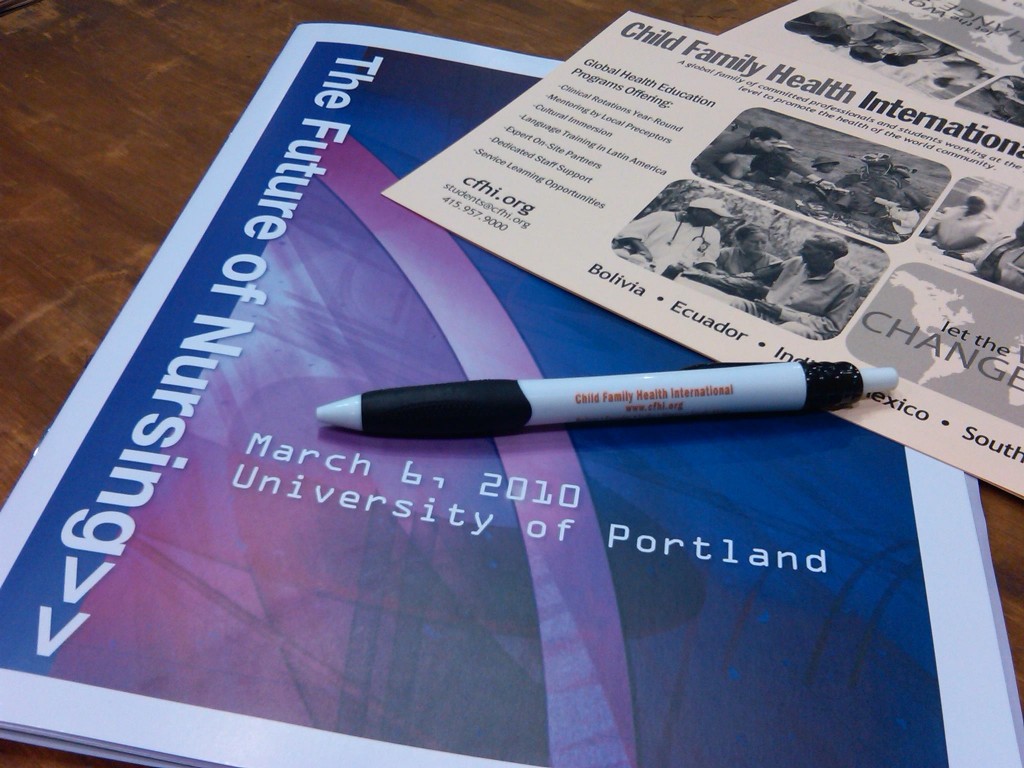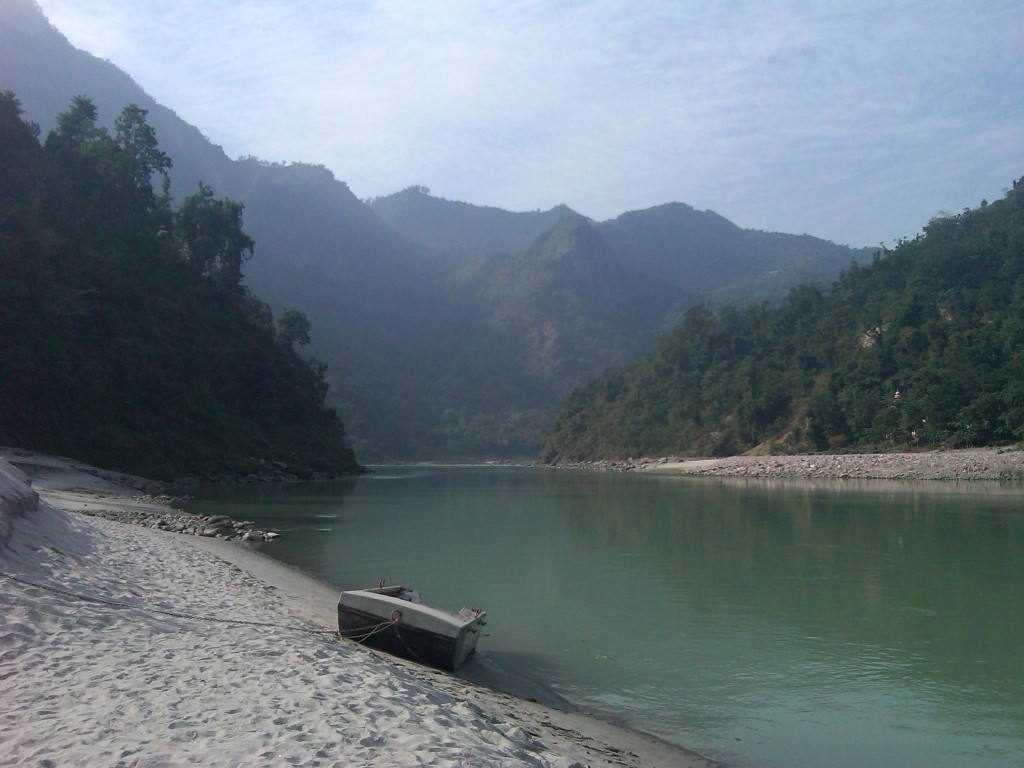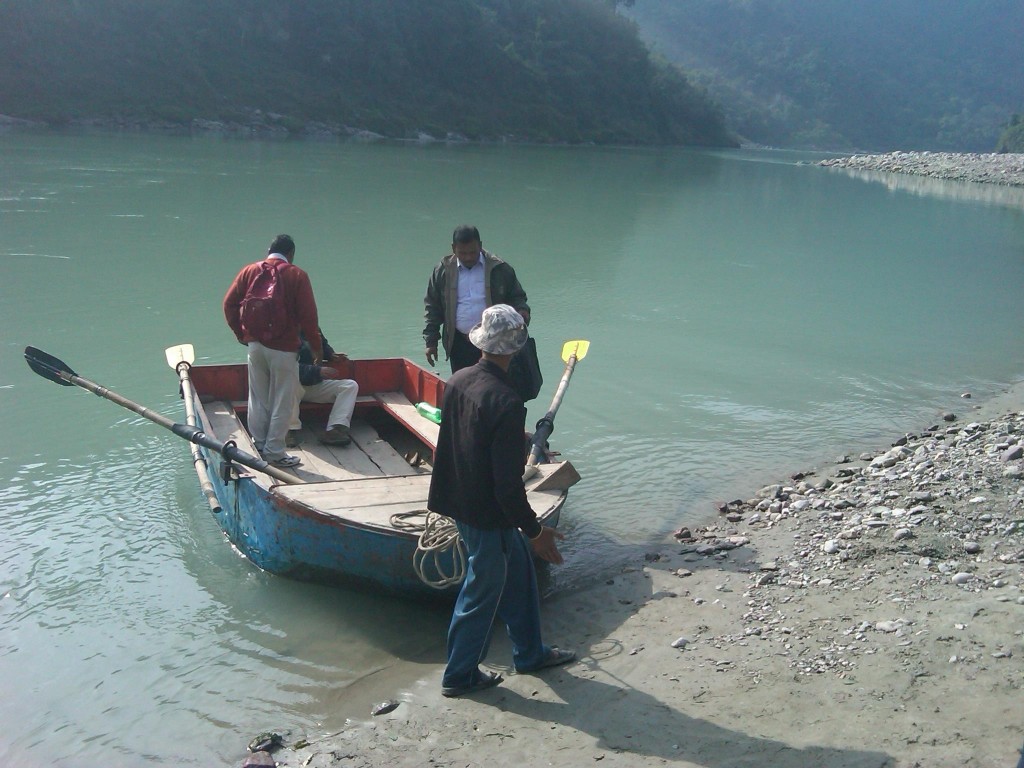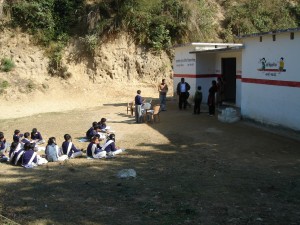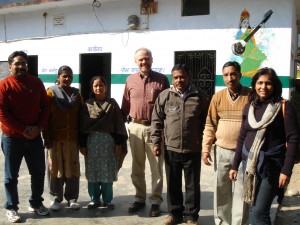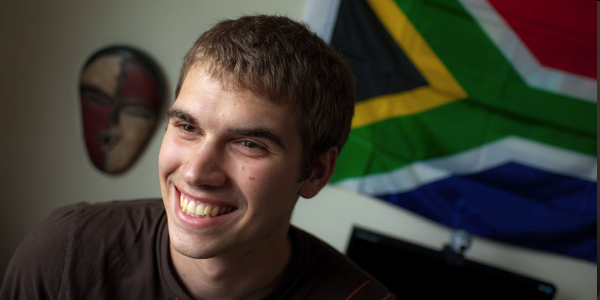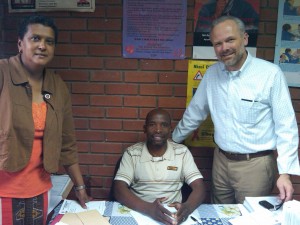Today, I had the good fortune to be at the Oregon Student Nurses’ Association Convention 2010 at the University of Portland. CFHI was happy to be one of the sponsors for the event. Approximately 300 nursing students from across the state assembled for their annual meeting. It was a great reminder for me of the importance of nursing in our own healthcare system and it made me think of the pivotal role of nursing in so many of the countries where CFHI works.
CFHI local Medical Directors from Mexico to India have often taken great care to point out to me the specific and vital contribution of nursing in their own healthcare systems. In New Delhi, for example, CFHI Medical Director Dr. Vimarsh Raina has made a great commitment to raising the awareness of the Indian youth to nursing as a career and for advancing the skills of nurses. CFHI has been happy to assist Dr. Raina in providing some scholarships over the years to help make nursing education available to young people who might otherwise not be able to afford such an opportunity. Then, of course, there is our own CFHI Medical Director in Cape Town, South Africa, Mrs. Avril Whate, who herself is a Nurse Practitioner and a Certified Midwife. With an impressive long career in a healthcare system that has faced many significant challenges, she is very adept a helping international students of all health professions process the profound experiences that they have while on CFHI rotations in Cape Town. She actually has the fan club to prove it. Recently, Avril and the CFHI Local Coordinator for Cape Town, Marion Williams, were able to visit the United States. During a multi-city, cross-country tour, there was an outpouring of CFHI alumni –many who are now nurses and doctors— who turned out to welcome and reconnect and to say thanks.
Back to Portland, where today’s convention carried the theme: The Future or Nursing,
and clearly, I was able to meet and talk with a real slice of the future of nursing and I was very happy to see a healthy appetite among them for all things related to Global Health. CFHI’s Global Health Immersion Programs have had many many nursing students over the years and we are happy to welcome the new generation. If the passion, motivation, and commitment I saw today in Portland are any indication of the level of interest in Global Health among today’s nursing students in general, then it is indeed a good day for Global Health.

